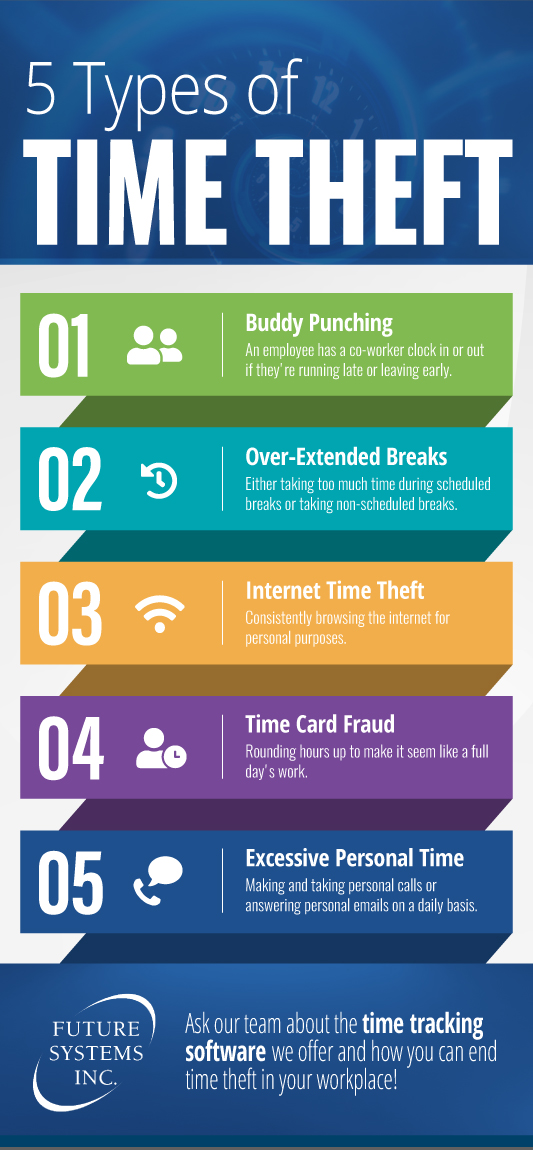Ready to Get Started?
Please give us a call or fill out our contact form and a member of our friendly team will be in touch.
We’re ready to help you today!
While it's not as infamous as embezzling funds or looting company products, stealing time can be just as damaging. In fact, It's estimated that 11 billion dollars each year is lost this way.
Time theft, or excessive paid periods that employees spend unproductively, is a workplace issue every boss, manager, or supervisor knows well. They'll also tell you it's only gotten worse as businesses adopt remote or hybrid models, where employers have less visibility.
Here are the 5 common types of time theft in the workplace:
A study by the American Payroll Association reported that more than 75% of companies lose money from "buddy punching."
Just as it sounds, buddy punching occurs when employees have a co-worker punch into the time clock for them if they're running late or have to leave early. It tricks the system into thinking the employee has put in a full day of work, when in reality, they didn't.
Employees need to take regular breaks to avoid burnout. However, consistently having a 60-minute lunch turn into a 75-minute lunch or adding another 5 minutes to a 15-minute break adds up quickly.

Smoke breaks are among the most costly types. The average smoker takes roughly 6 days of smoke breaks every year, and that's only the average. In some industries, these breaks can add up to over 20 days a year.
As one of the most common forms of time theft, this is when employees use the internet for non-work purposes. They could be using it for browsing the internet, online shopping, playing games, or spending bulks of time on social media.
Since many jobs require laptops, tablets, etc. to carry out workplace tasks, this often makes it difficult to detect misuse.
If an employee comes in late or leaves work early, they sometimes will round their hours to make it seem like they were there for a full day.
Often this is done with innocent intentions, with the employee thinking it would be easier for payroll to have round numbers to calculate. Usually this only amounts to a couple of minutes every day, but over the span of a couple of weeks or a month, it starts to add up.
It's completely understandable that at times an employee might have to take a personal call or answer a personal email. Emergencies happen. But when it starts to happen on a consistent basis and starts to be abused, that's when it moves into time theft territory.
One unfortunately common example is when an employee is running their own business while at work. This could mean reaching out to their own customers, working on their website or social media, or even attempting to sell products to other employees.
Looking for ways to prevent time theft in your workplace? Check out our article on time theft prevention methods or ask us about our completely web-based time tracking software.
Our timekeeping solution offers the flexibility you need. From fingerprint time clocks to time clock apps, our professional team has the options you need to save your business money and stop employee time theft.
Please give us a call or fill out our contact form and a member of our friendly team will be in touch.
We’re ready to help you today!